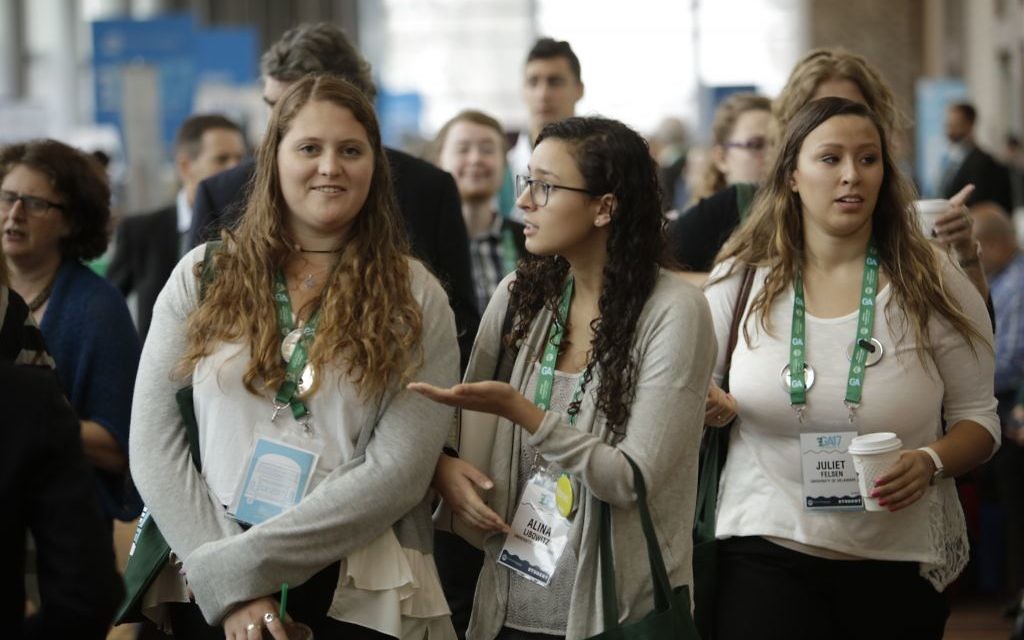Jewish Federations of North America CEO Jerry Silverman laid out some audacious goals for American Jewry for the next decade in his opening speech at the 2017 General Assembly — increasing from 14 percent to 50 percent the portion of Jewish youths who go to Jewish summer camp, doubling to 360,000 the number of PJ Library families, ensuring that day schools are accessible for all Jewish families who want them, getting every Jew to Israel at least once by age 25.
But none of those goals seems attainable unless the Jewish community can solve the problem of millennials, those 17- to 37-year-olds who seem more obsessed with social media and social justice than synagogues and Jewish life.
So it wasn’t surprising that a first-day panel discussion at the gathering of America’s Jewish communal leaders Sunday, Nov. 12, focused on “the millennial factor.”
Get The AJT Newsletter by email and never miss our top stories
Free Sign Up
Rabbi Michael Uram, the executive director of Hillel at the University of Pennsylvania, and moderator Mark Oppenheimer, the host of Tablet Magazine’s “Unorthodox” podcast, talked about millennials, while Faith Leener, the co-founder and director of Base, and David Yarus, a consultant on engaging millennials and the founder of JSwipe, spoke as millennials.
For anyone who has worried about the Jewish future, the conversation was familiar if, as Yarus and several audience members said, too rare.
Jewish communal leaders were urged to recognize that this is 2017, not 1917, and the communal institutions and approaches that thrived when newspapers weren’t even challenged by radio and television, let alone Facebook and Instagram, won’t work today.
There’s a sense of crisis involving millennials, based on the belief that they’re somehow more disaffected and disconnected from organized Judaism than previous generations. Rabbi Uram said the crisis approach itself contributes to the problem of disconnectedness because it leads to a concentration of power and decision-making among a few funders and “experts.”
Accounting for the diffusion of interests in all areas of life, however — just look at the expansion in TV viewing options and the resulting decline in ratings for the most popular shows — I’m not sure that view of millennials is accurate.
Every generation is a source of worry for the Jewish community, and every generation is convinced that it is different.
If millennials are a little slower in engaging with the community, that reflects delays in marrying and having children more than an increased skepticism. If they seem more determined to connect their donations of time and money to specific results than earlier generations at the same age, they’re reflecting the vast increase in available information and ever-growing demands for transparency throughout society.
The panelists were right that the Jewish establishment fails when it dumbs down programming, when it substitutes social fun for Jewish substance, when it emphasizes quantity over quality, when it seeks immediate results instead of long-term success, and when its focus is on sustaining itself by turning “them” into “us” instead of helping them connect with Judaism in ways that let them be who they want to be.
We err when we treat millennials — or any other group underrepresented in the ranks of our communal leaders — as outsiders who must be lured in. Instead, we must make it as easy as possible for all Jews to create their own forms of community, and we must clear paths for those new voices to be part of the communal conversation.
As one person suggested during the discussion, instead of separating younger Jews by calling them millennials, maybe we ought to apply a different label: “humans.”





comments